Exclusively for Health and Social Care students...
When you join us at our Colchester campus, you'll have access to our fantastic facilities. We want our on campus experiences to thoroughly prepare you for the wide range of hospital, community and third-sector settings which you may experience during placement or when you graduate, so we have a mix of facilities at your fingertips.
Our facilities
How do our student nurses use our facilities?
Simulation wards
At our Colchester Campus, we have two simulation or “mock” wards that can be set up to represent a variety of hospital-based environments.
Our simulation wards are equipped with hospital beds and clinical equipment equivalent to what you’ll find in our local NHS hospitals. We pride ourselves on creating a learning environment that thoroughly prepares you for the realities of placement and your nursing career beyond.
Teaching in the simulation wards doesn’t replace placement, but it gives you a supportive, nurturing space to ask questions and develop your skills at a more relaxed pace than in real clinical settings. We pay attention to detail, for example, we have a machine that creates realistic mock injection medication, so you gain experience handling vials and ampoules just as you would in practice. We also have intravenous infusion pumps, helping you become familiar with key equipment before going on placement.
The wards contain training manikins used to simulate scenarios such as wound care, breathing difficulties or sepsis. These manikins are highly sophisticated, their pupils dilate, you can observe breathing, and you can take their pulse. Each manikin is connected to a monitor showing vital signs, and our academic skills tutors can run up to 30-minute simulations where the patient may deteriorate or present new symptoms. You’ll use your knowledge, clinical skills and teamwork to assess the situation and respond appropriately as it unfolds. And if things don’t go to plan, we simply reset and you can try again.
Training manikins and simulation body parts also allow you to practise clinical skills such as intubation, catheterisation, taking blood specimens and cannulation.
Community Living Spaces
At Colchester, we also have Community Living Spaces used to simulate home and care/nursing home environments. These spaces are furnished with adaptive bathrooms and kitchens, as well as living room and bedroom setups. Each room has ceiling hoists, and we also have free-standing Hoyer lifts available.
If you choose to study Mental Health Nursing, these spaces are particularly valuable as many of your placements will take place in community settings.
Consultation Rooms
We have a number of Consultation Rooms at our Colchester Campus. These spaces can be used by any subject area to simulate one-to-one conversations with patients, helping you develop compassionate communication skills and professional relationships. Using these rooms encourages you to think about how to create positive interactions — for example, how body language and positioning can influence the comfort and confidence of a patient.
Flexible teaching spaces
Our Colchester Campus also includes flexible teaching spaces that can be arranged to support practical learning such as basic life support and manual handling. Throughout your course, these rooms may be used for simulations, seminars, or lectures depending on the needs of your learning.
How do our Occupational Therapy students use our facilities?
Simulation Wards
If you study Occupational Therapy, you'll use the mock wards in Colchester to practice your clinical skills and also take it in turns with your classmates to be each other’s patients. You'll learn to use slide sheets to change a bed with the patient still in bed, or to move a patient up/down a bed. You'll also learn to use a range of assistive equipment such as Hoyer lifts (the hoist to get from bed to a wheelchair or commode, etc), and sit to stand aids. Having the opportunity to be the patient is beneficial to your development as it'll change your perspective, develop your empathy and help you to explain what will happen next when supporting a patient with assistive equipment.
Community Living Spaces
We have three dedicated Community Living Spaces on our Colchester Campus. Each space is equipped with adapted bathrooms, kitchens, furnished living rooms and a bedroom. They can be set up to simulate various community settings to include a patient's home or a care/nursing home. You will role play scenarios with your course mates to practice your skills, but also to build your understanding of how it might feel to be the patient.
Each room is kitted out with a ceiling hoist so you can work through realistic scenarios that you may encounter on placement, for example, a patient is unable to get out of the bath independently and requires to be hoisted. You will learn how to support your patient and maintain their dignity, as well as protect your own health and well being through appropriate manual handling.
How do our Speech and Language Therapy students use our facilities?
Communications Labs
On our Colchester Campus we have two Communications Labs which are exclusively for our Speech and Language Therapy students. One lab contains resources and assessments specifically for adults. We also have a bank of adult anatomy and physiology models which you can use to develop your knowledge. The computers in this space have software to explore anatomy and physiology also as well as looking at soundwaves and sound production. Our second lab contains resources and assessments specifically for paediatrics. Clinicians often comment that our extensive collection of assessments is enviable to the realities of practice. However this means you'll be familiar with a wide range of assessments and have a good knowledge of what assessments are possible.
Simulation Wards
On our Colchester Campus we have two simulation or "mock" wards, which are fully equipped to replicate hospital based environments. As a Speech and Language Therapy (SLT) student, you will use the mock wards in Colchester to practice your clinical skills. You will take it in turns with your classmates to be a patient in the beds or chairs on the ward, and as a pair you will practise skills such as swallowing assessments. You might complete physical examinations of the mouth and throat, as well as checking their reflexes for gagging, coughing. You will prepare a series of substances for your "patient" to consume, from water to thickened liquids, pureed foods through to regular foods, and you will then watch for problems with chewing, swallowing or breathing.
You will also use the mock wards to practise skills such as oral care - you'll take turns to examine each other's mouths, and practise brushing each other's teeth! You can role play teaching one another about good standards of oral hygiene.
How do our Dental Hygiene and Therapy students use our facilities?
Dental Therapy skills labs
At our Colchester Campus, we have dedicated on-campus skills labs for Dental Hygiene and Therapy. These spaces feature state-of-the-art phantom heads with an open mouth and removable sets of teeth which you’ll use to practise a wide range of clinical skills. Each station is equipped with the clinical tools you would find in practice, including scalers, suction and other essential equipment.
Our postgraduate dental students are also taught in our on-campus Academic Dental Clinic. This clinic is the only place in England to teach advanced periodontology in a non-teaching hospital setting, giving students access to patients in an environment that mirrors general dental practice. This ensures you gain hands-on experience in a clinical setting closely aligned with where you will work professionally.
How do our Psychological Well-being Practitioner students use our facilities?
Consultation Rooms
On our Colchester Campus, we have many Consultation rooms. These rooms can be used by any subject area to simulate meeting with a patient in a smaller space and developing a caring, compassionate professional relationship. Using these spaces might help you to think through how to create positive professional relationships with your patients, and what you can do to put a patient at ease. For example, your body language in a smaller environment can change the atmosphere of the interaction (i.e. being in close proximity and standing up when the patient is sat down can be intimidating).
Flexible teaching spaces
We have flexible teaching spaces which can be set up to aid practical learning for all of our courses. These rooms can look completely different from one day to the next. These rooms can also be set up to support our Psychological Well-being Practitioner students who often use these spaces to develop their telephone-based support and protocols. We set the rooms up 'call centre' style with banks of telephone, and students will role play with their course mates.
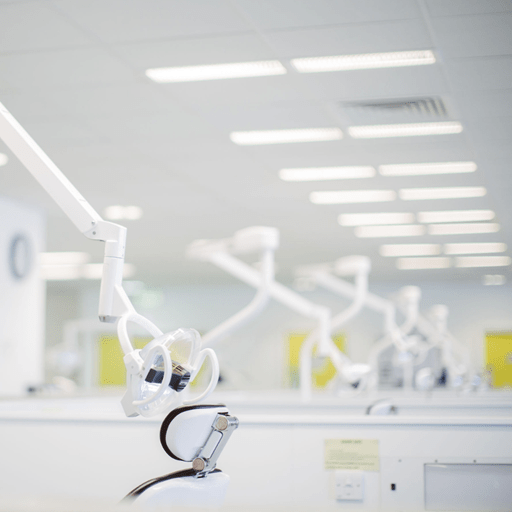
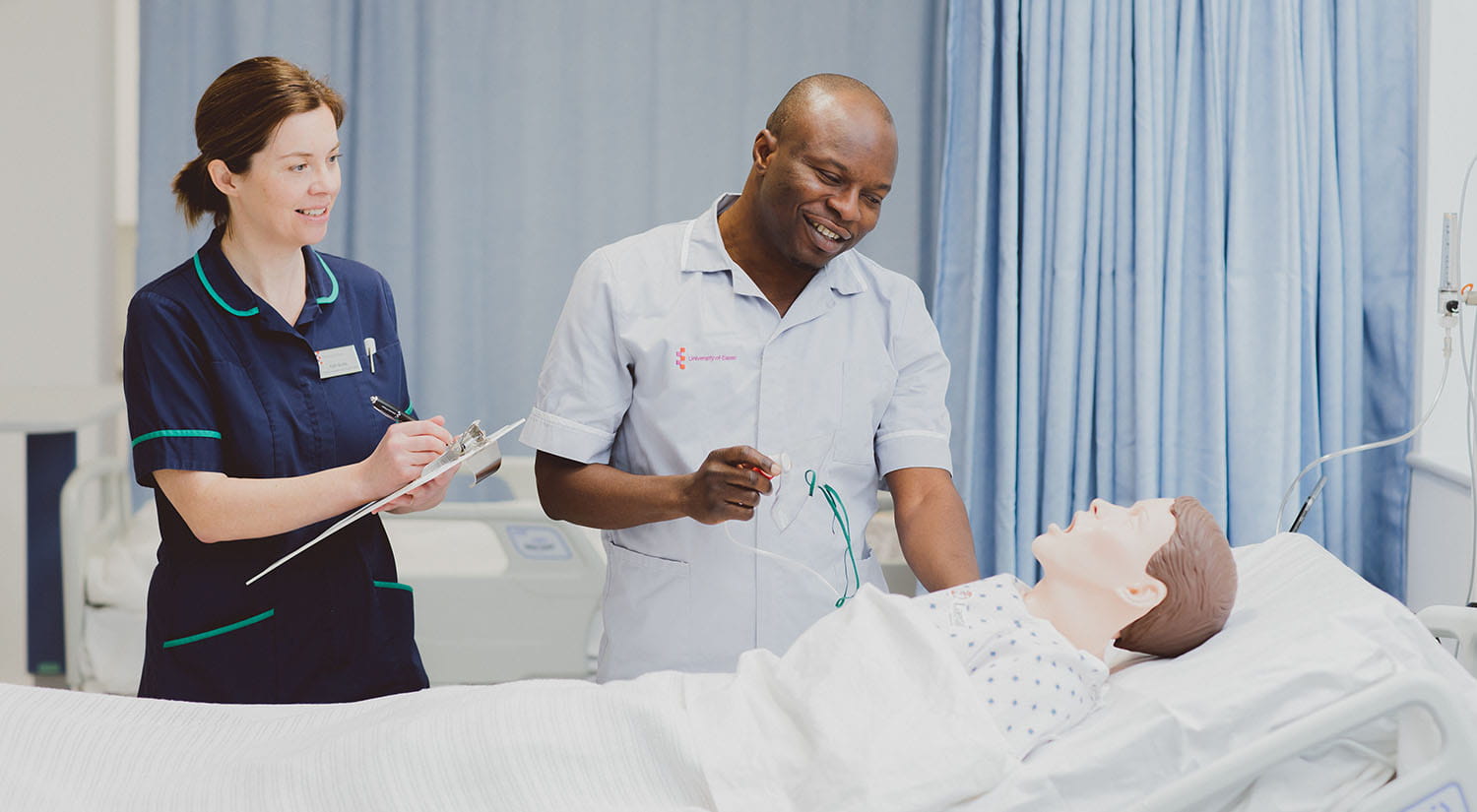
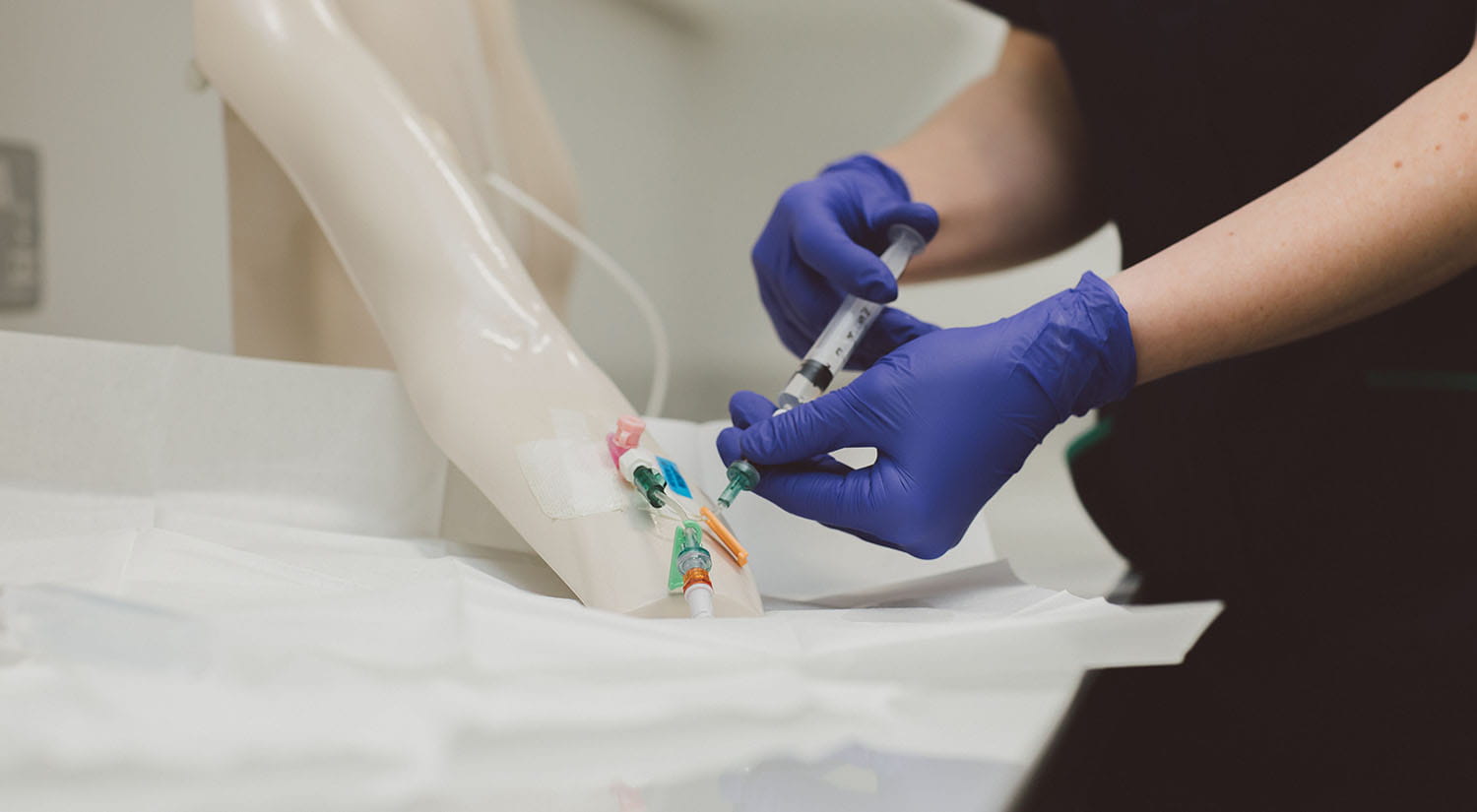
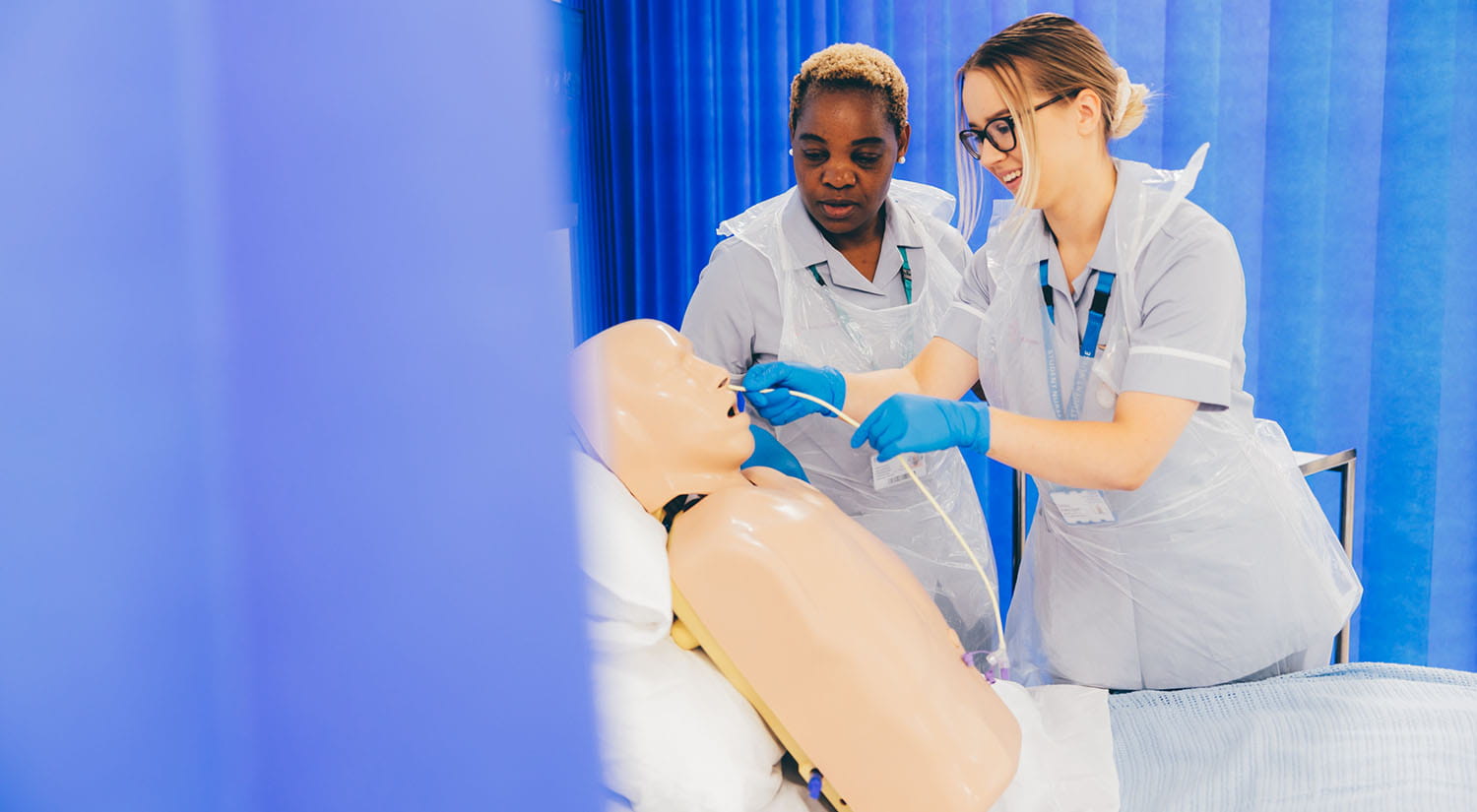
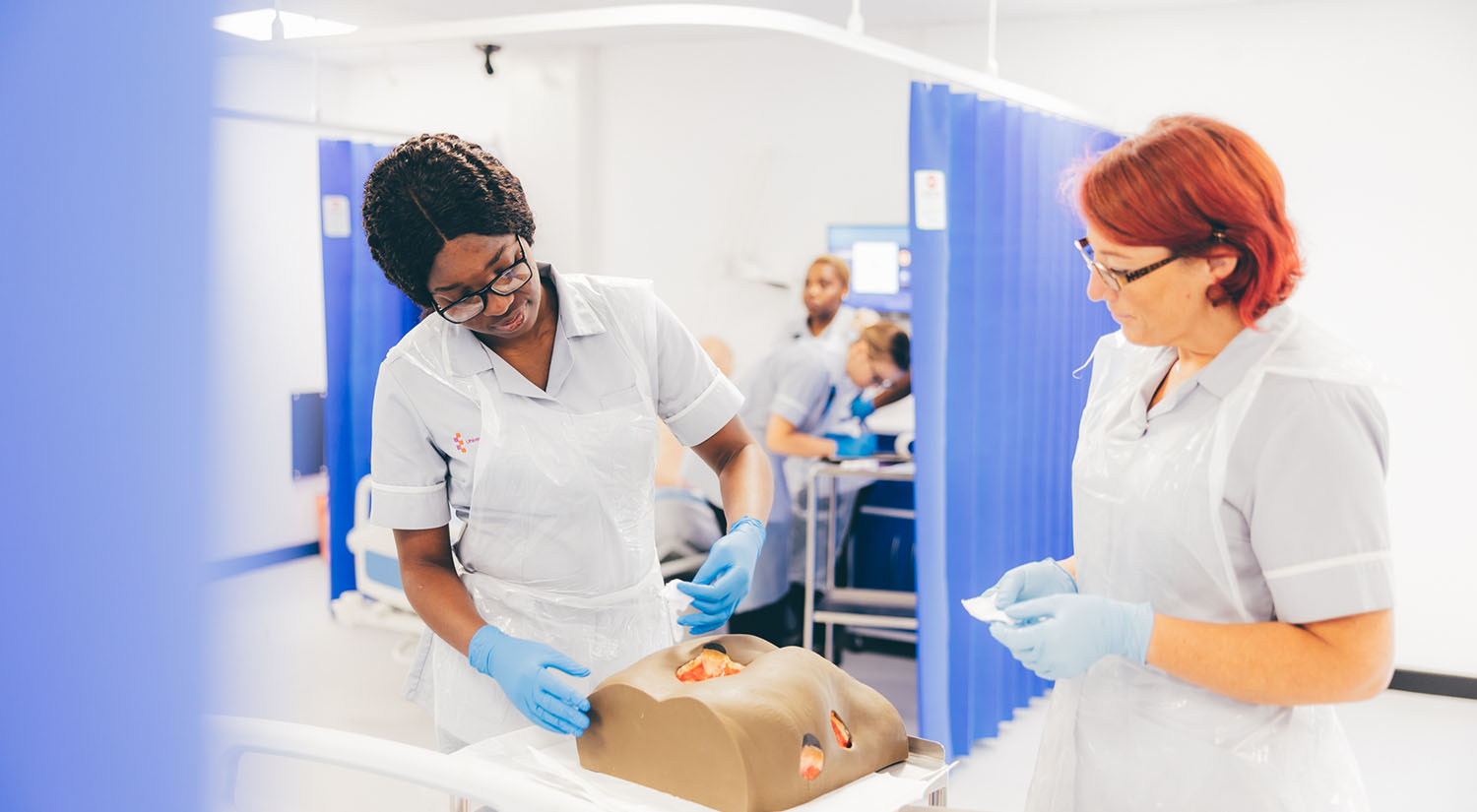
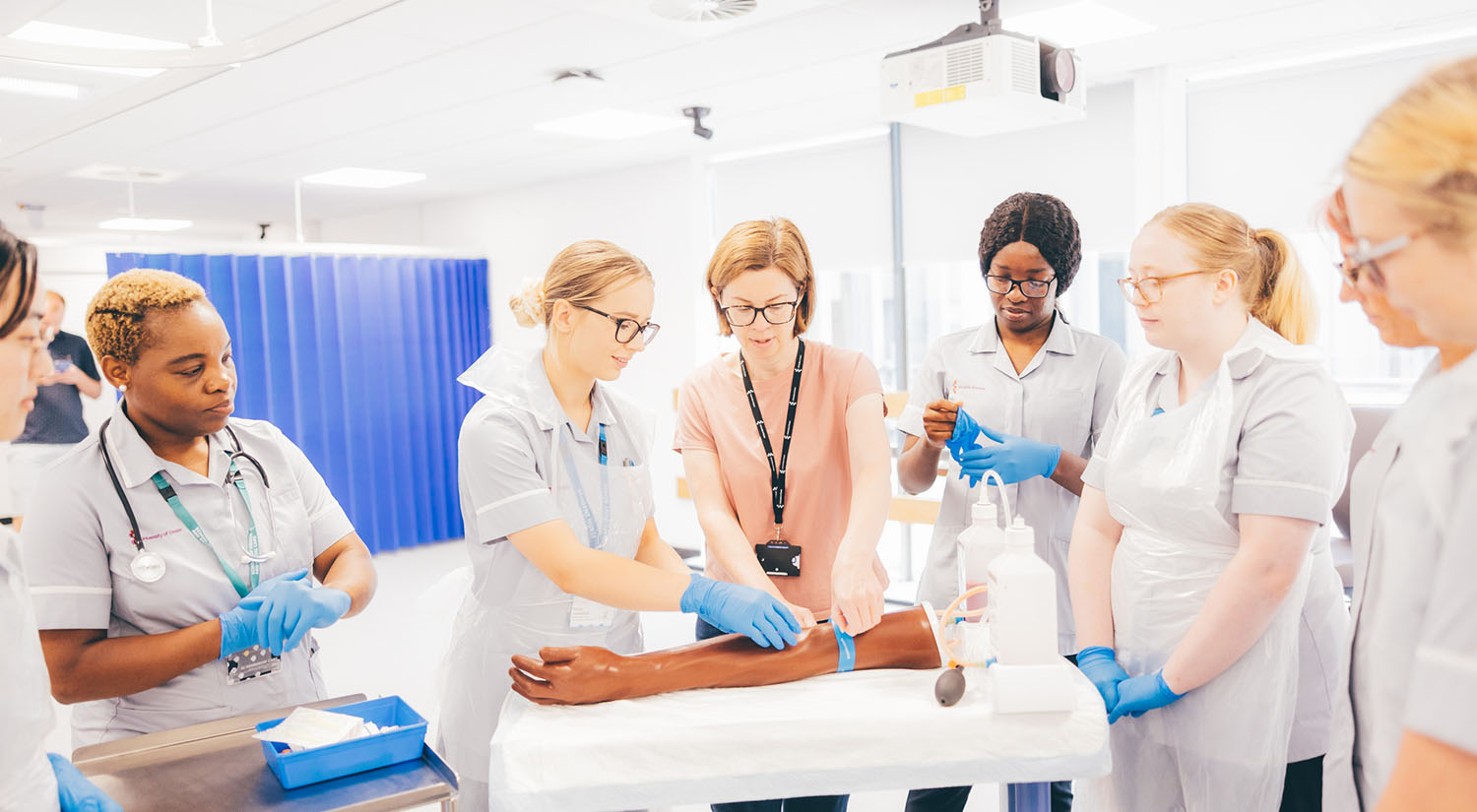
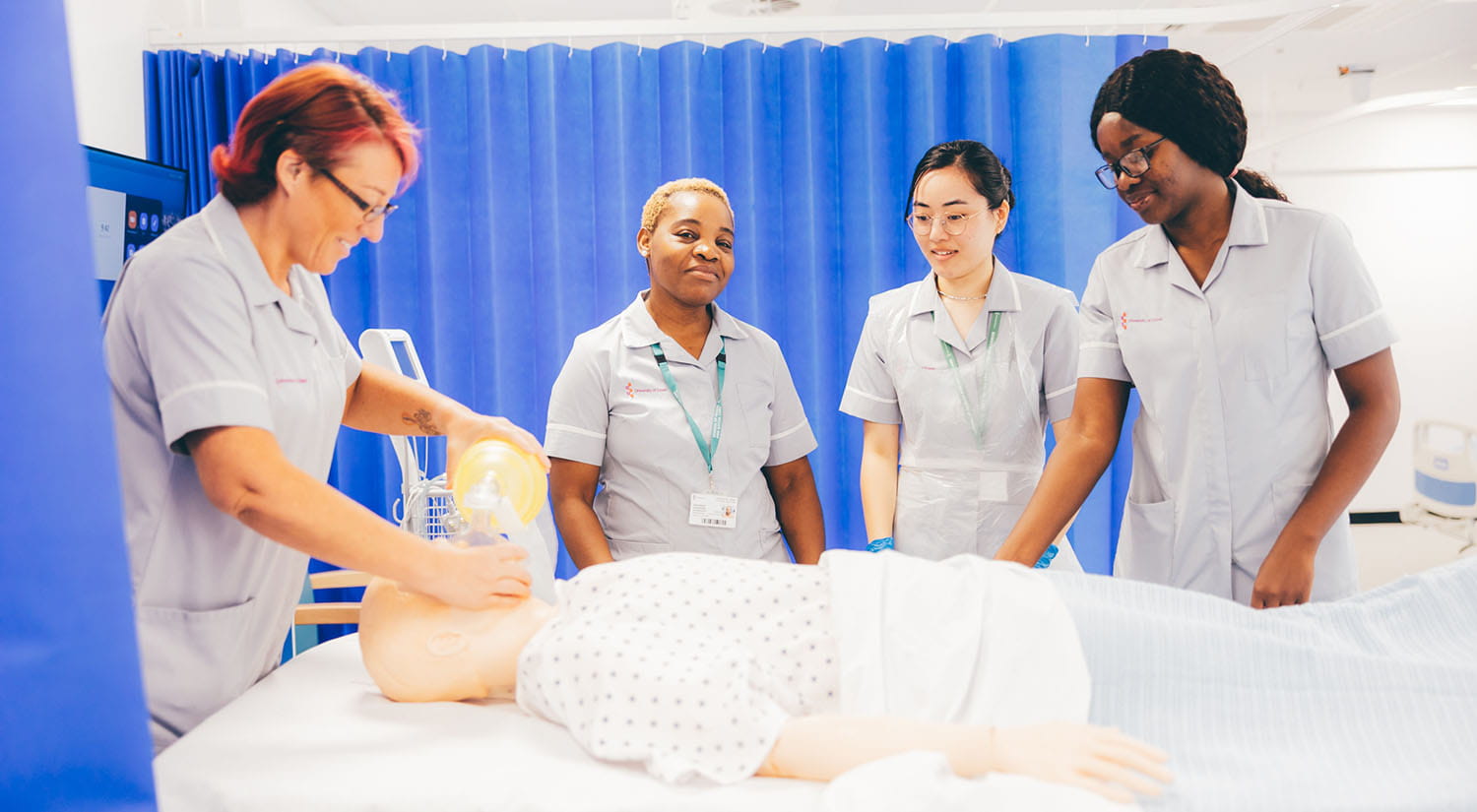
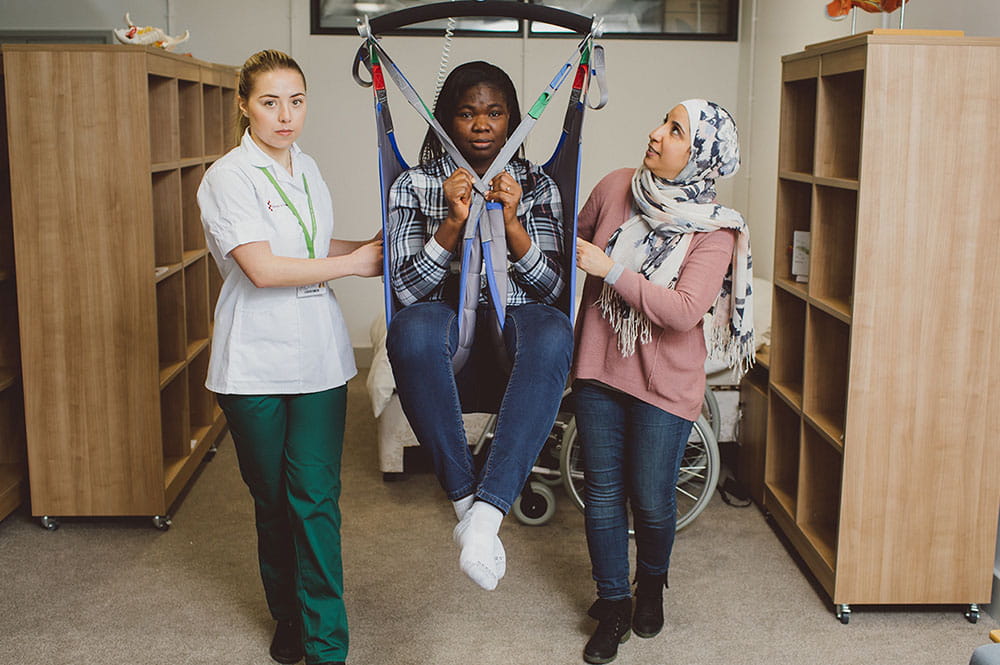
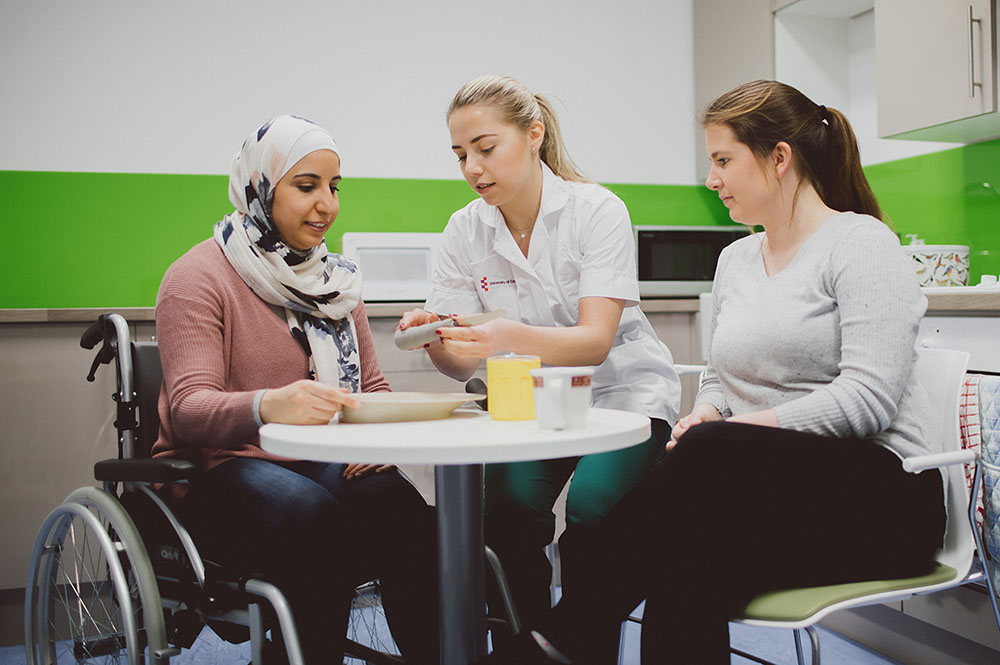
-1500x825.jpg?mh=825&mw=1500&hash=895BCF860EAE460E5FC819C1BD73B457)
-1000-x825.jpg?mh=825&mw=1500&hash=33857C253EAA3C3377362C1738186113)
-1500x825.jpg?mh=825&mw=1500&hash=D89CA867959B066C096E167AF2986583)
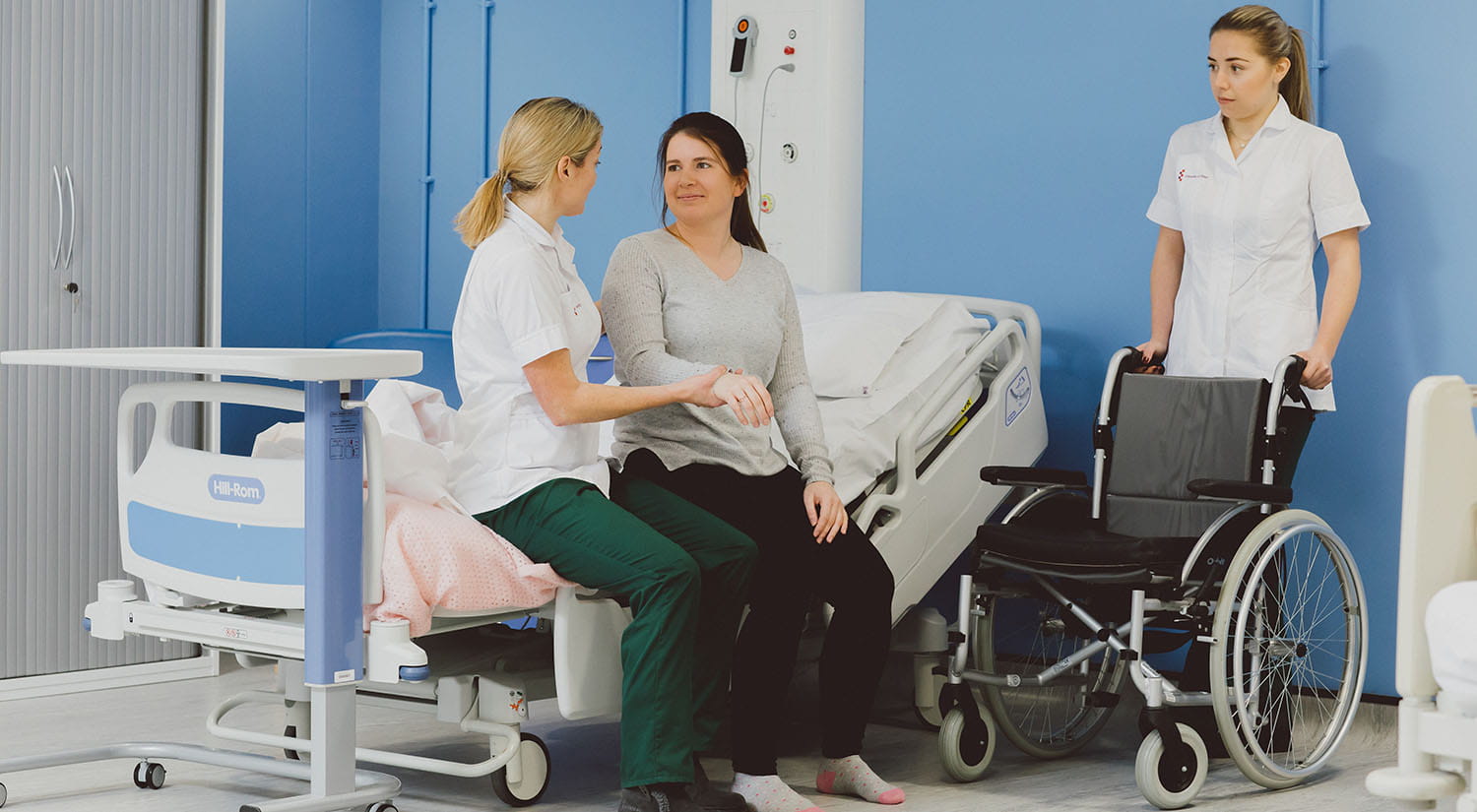
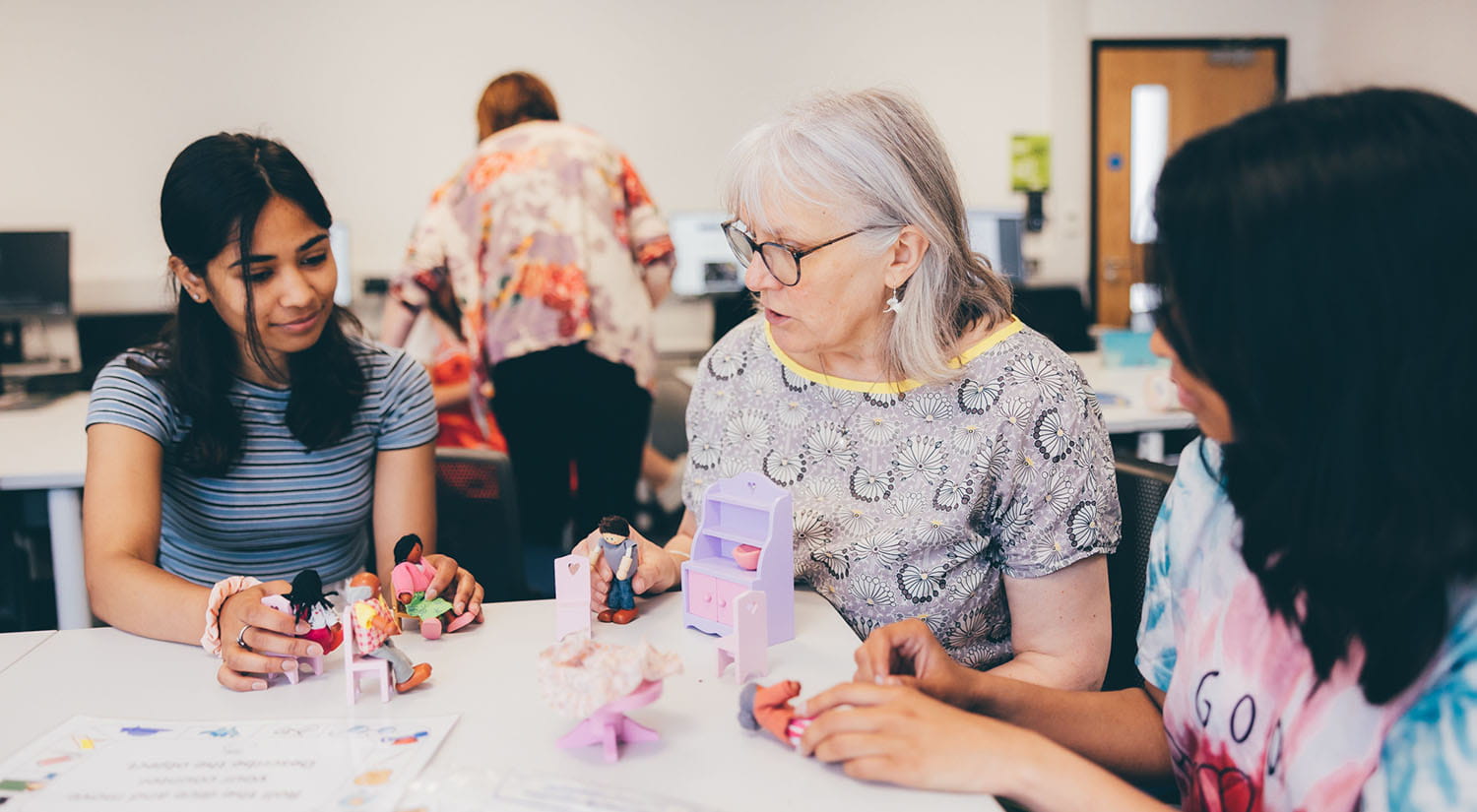
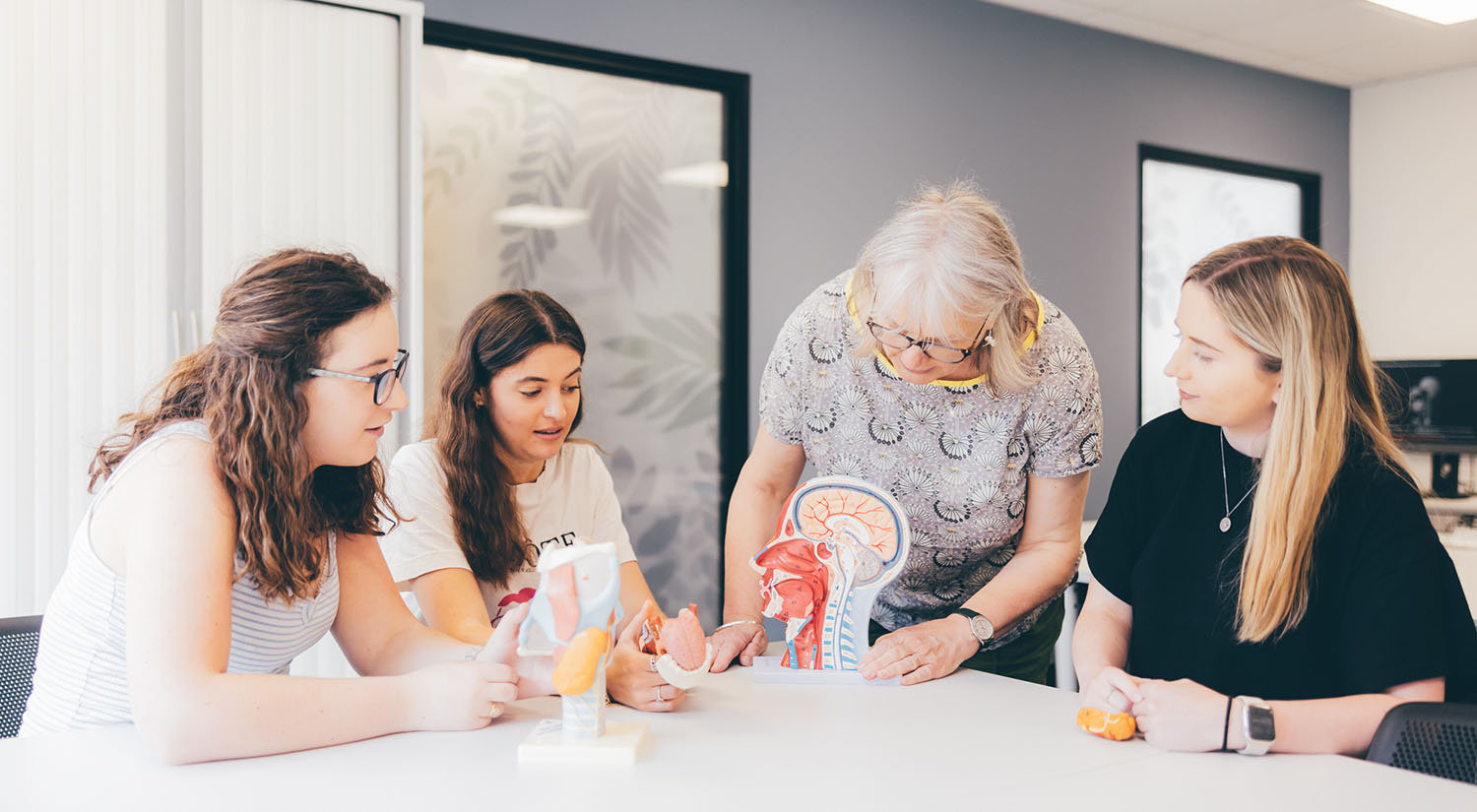
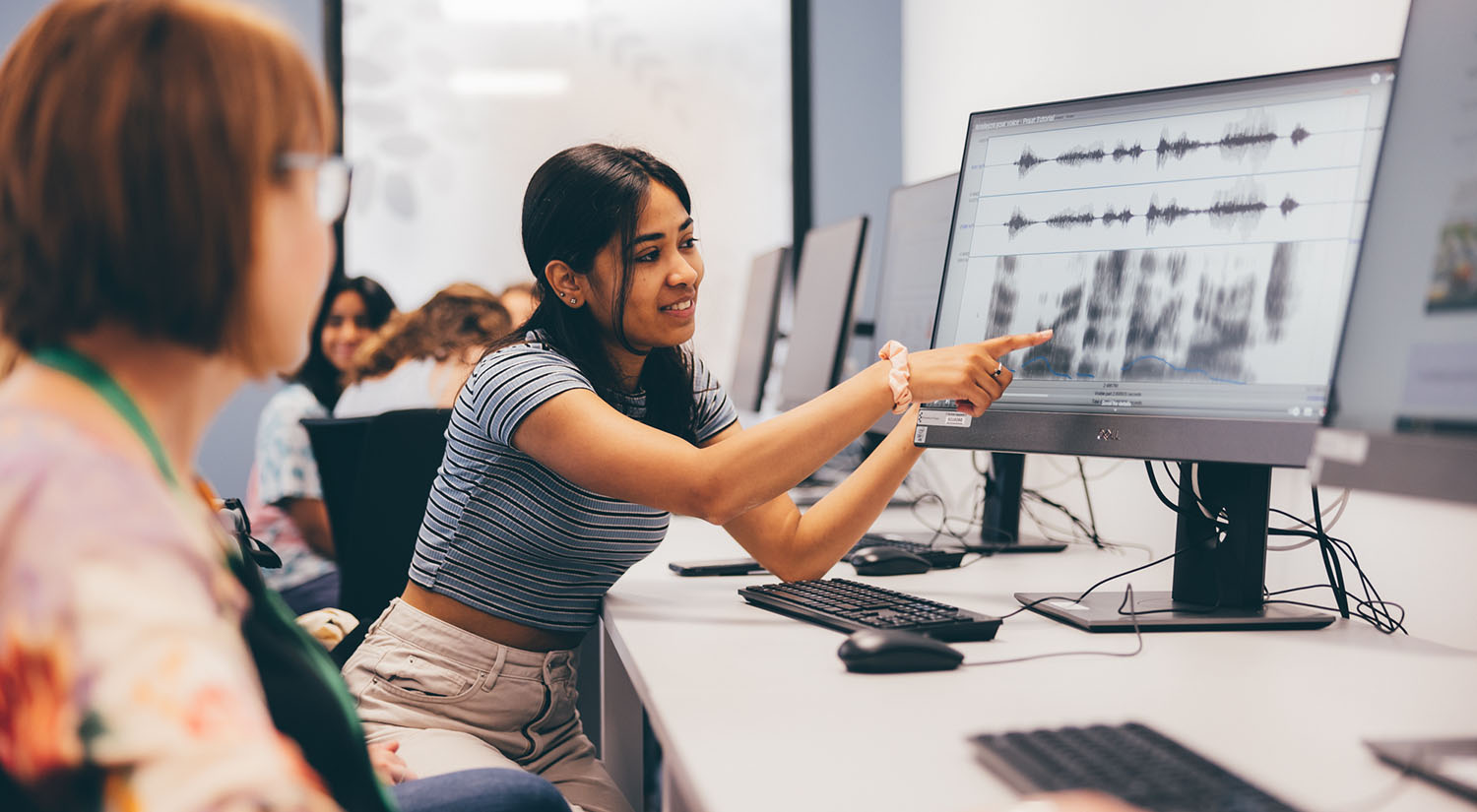
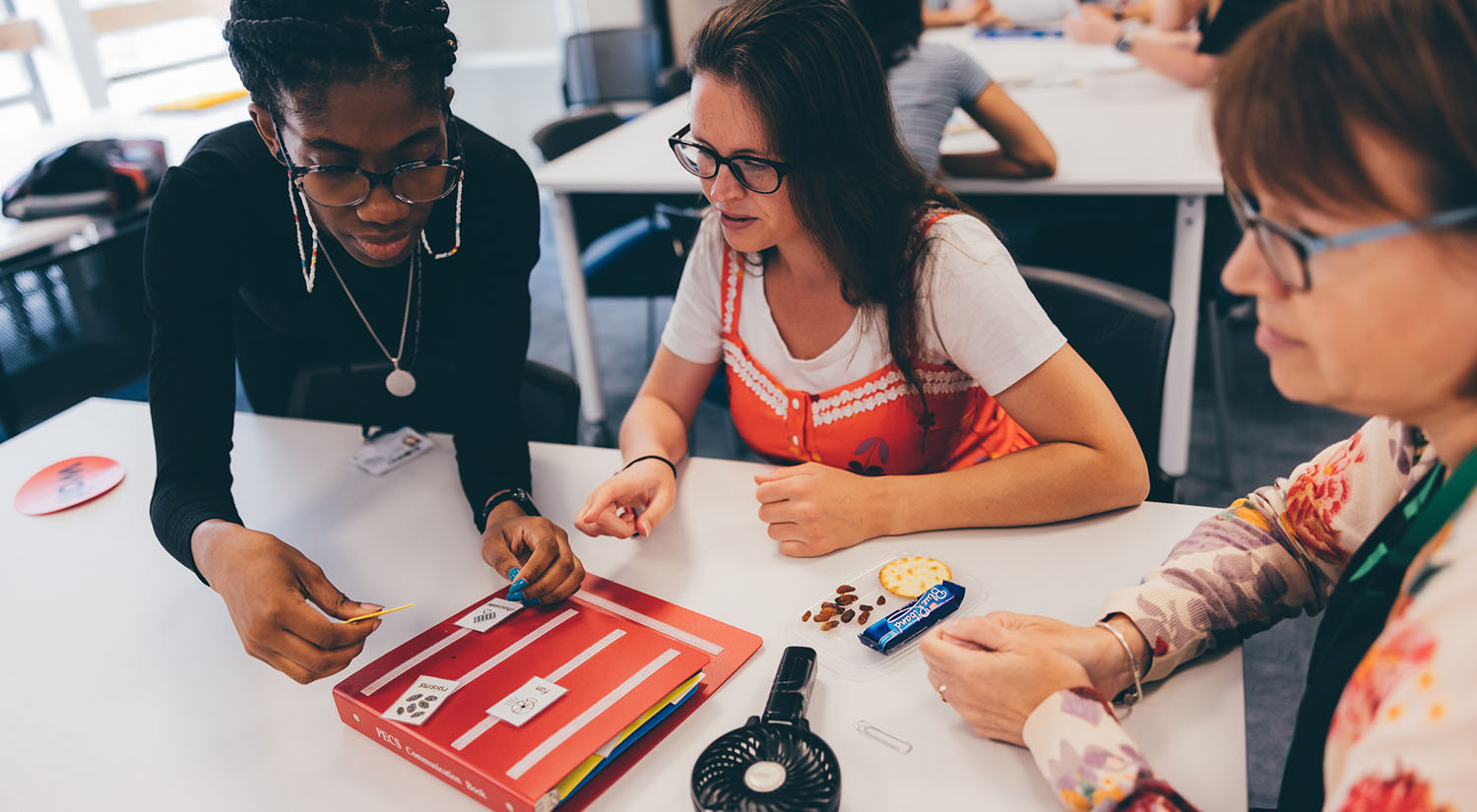
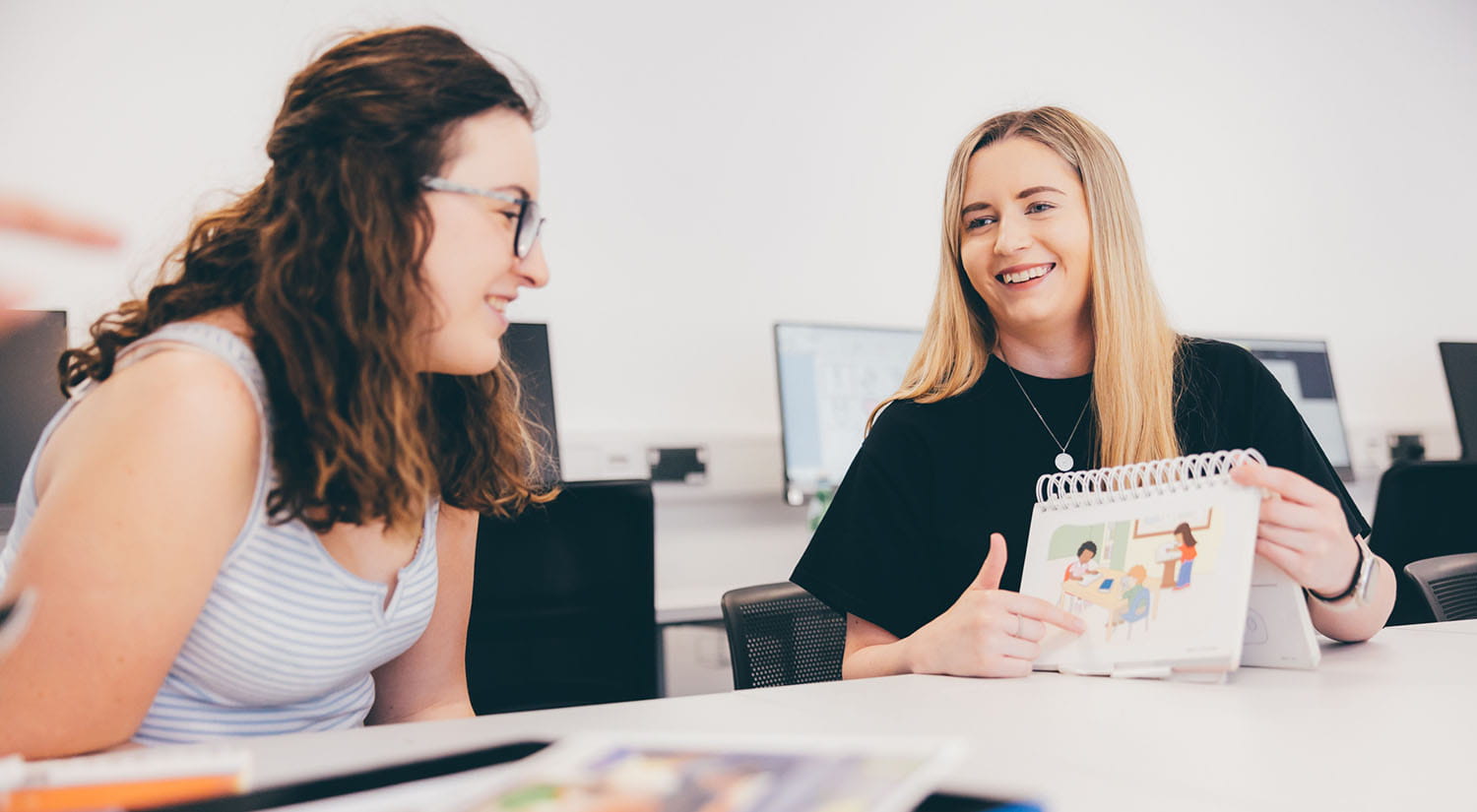
1500x825.jpg?mh=825&mw=1500&hash=96F8351828BB431F55F4E8A69C600C74)
1500-x-825.jpg?mh=825&mw=1500&hash=187E6C463E203B279D253A86734E4A24)
-1500x825.jpg?mh=825&mw=1500&hash=D3464976F1F89384F802063E20EE1DC9)
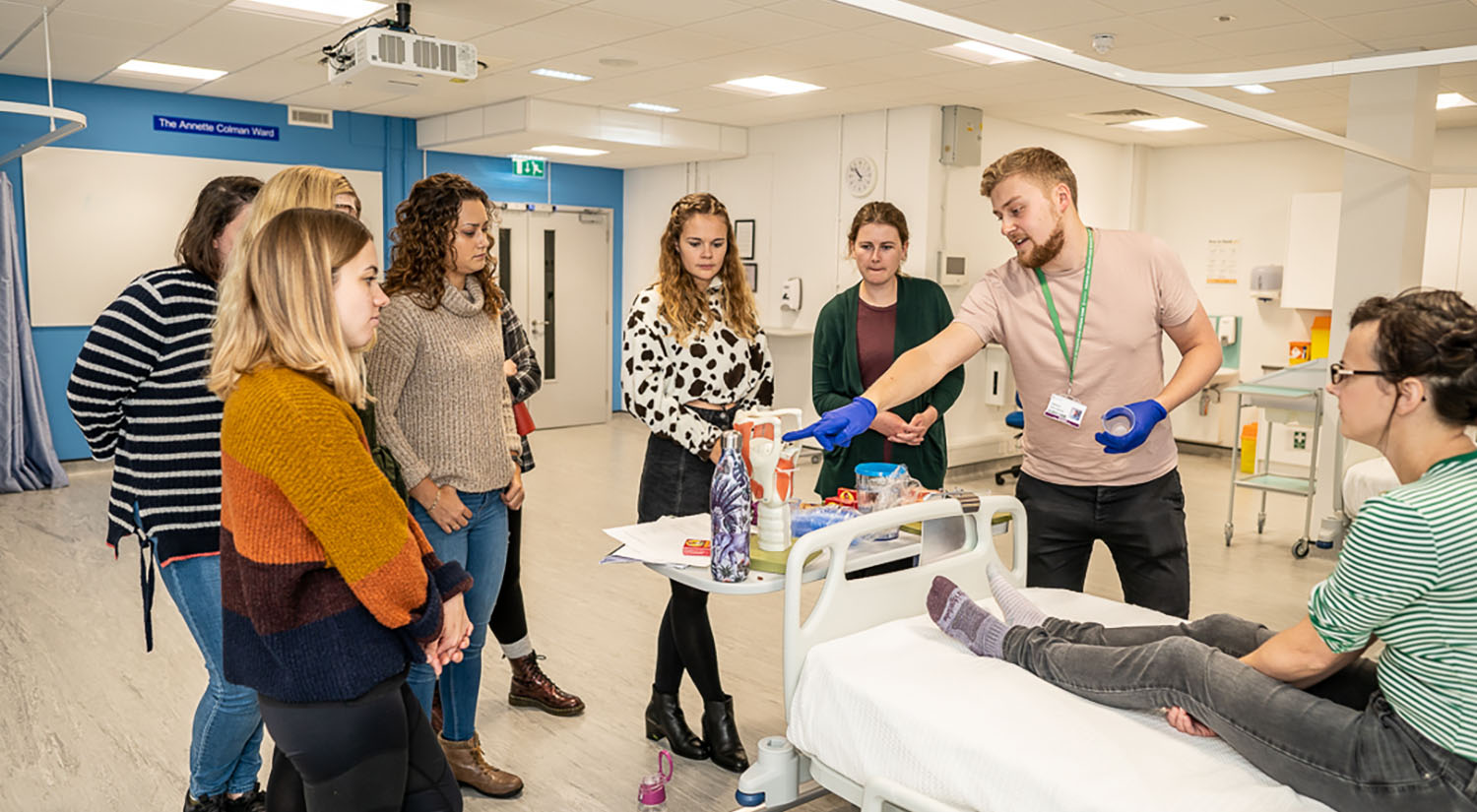
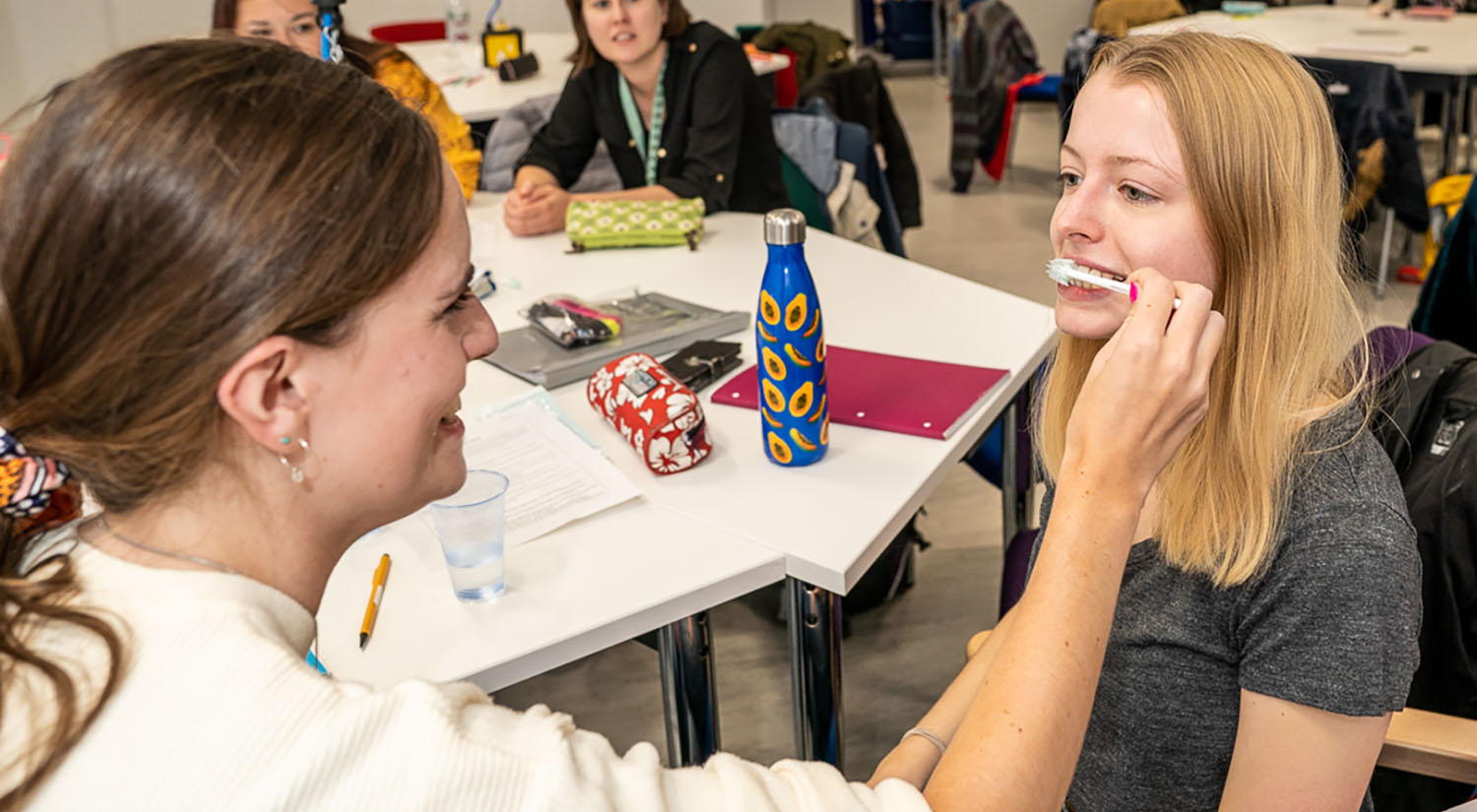
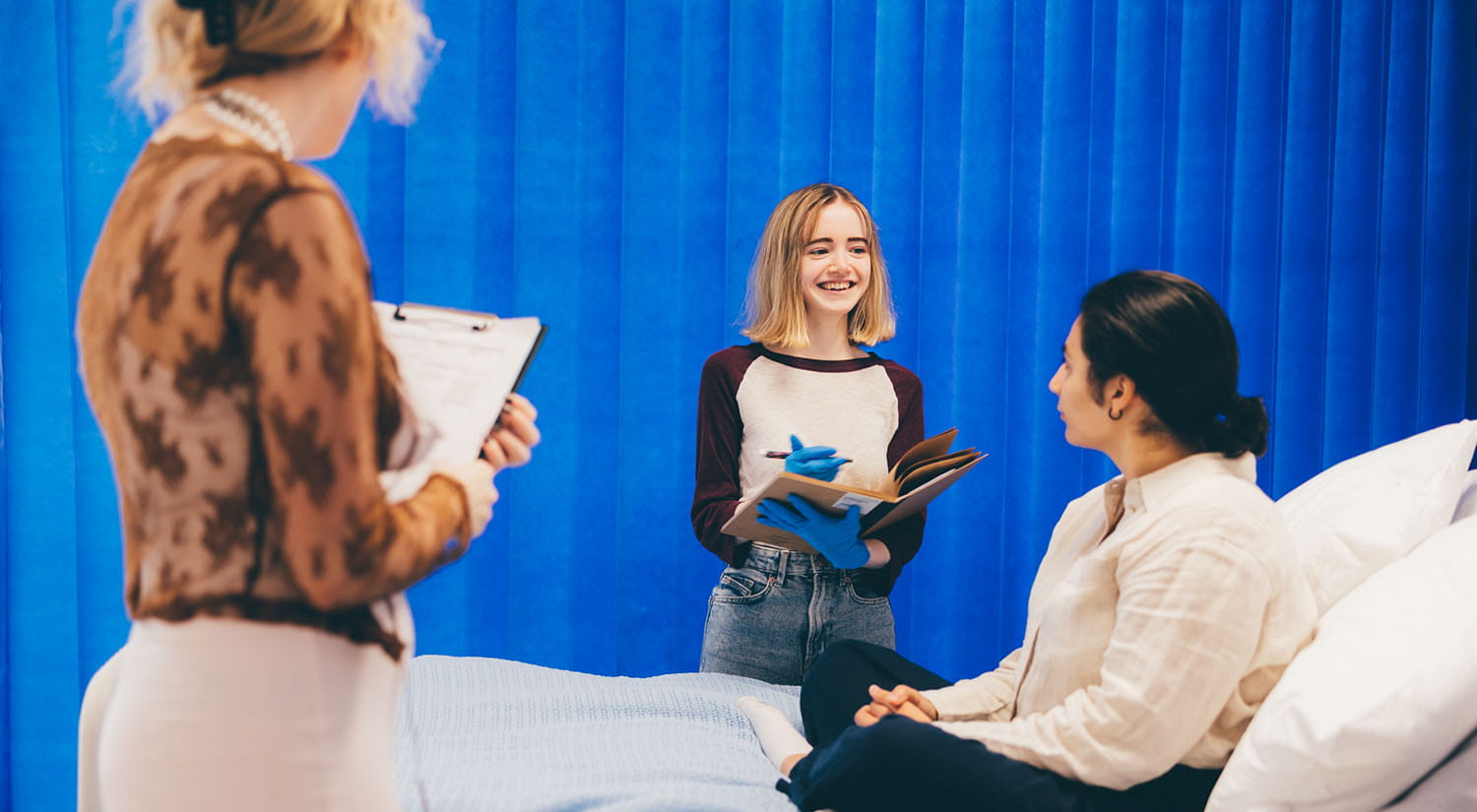
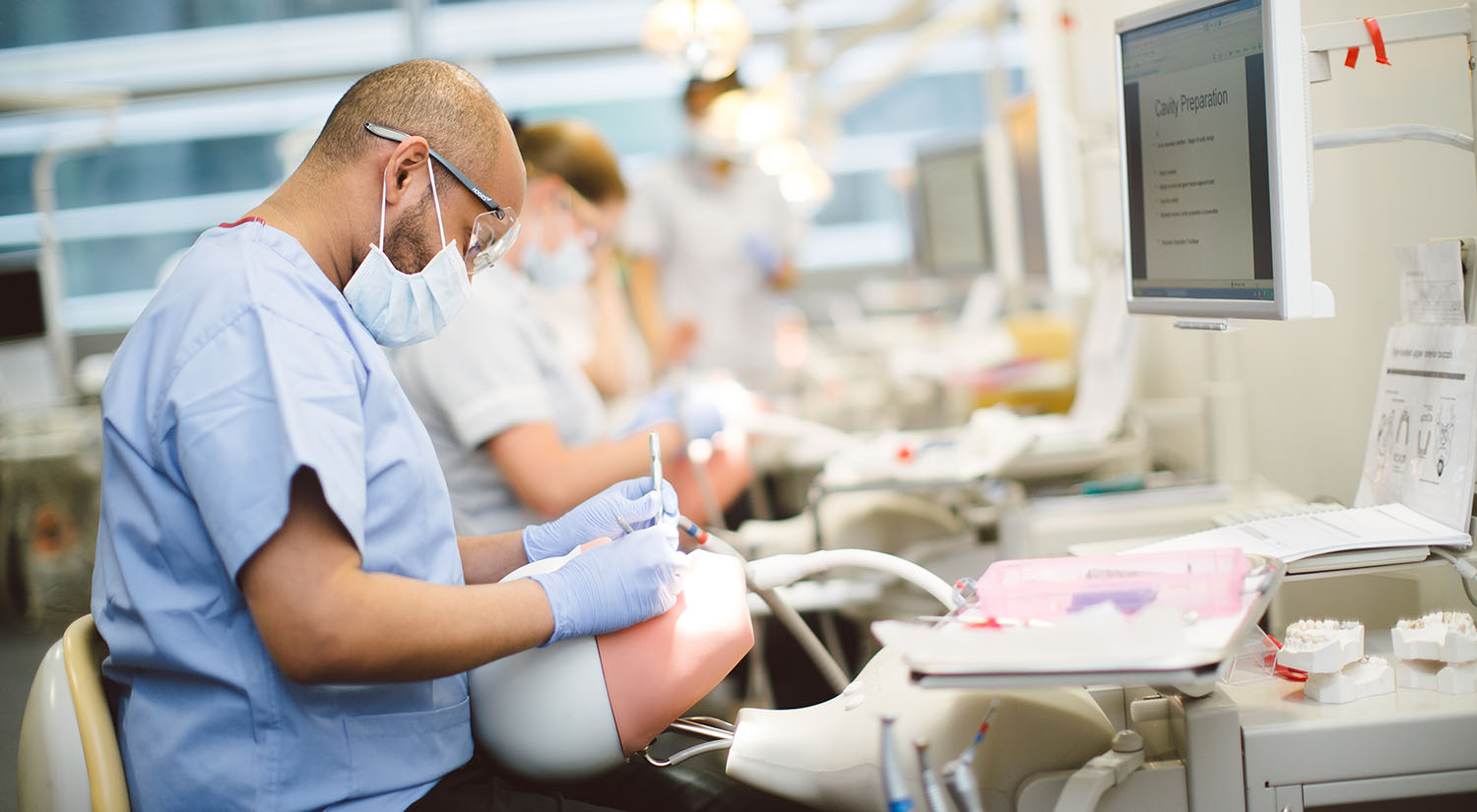
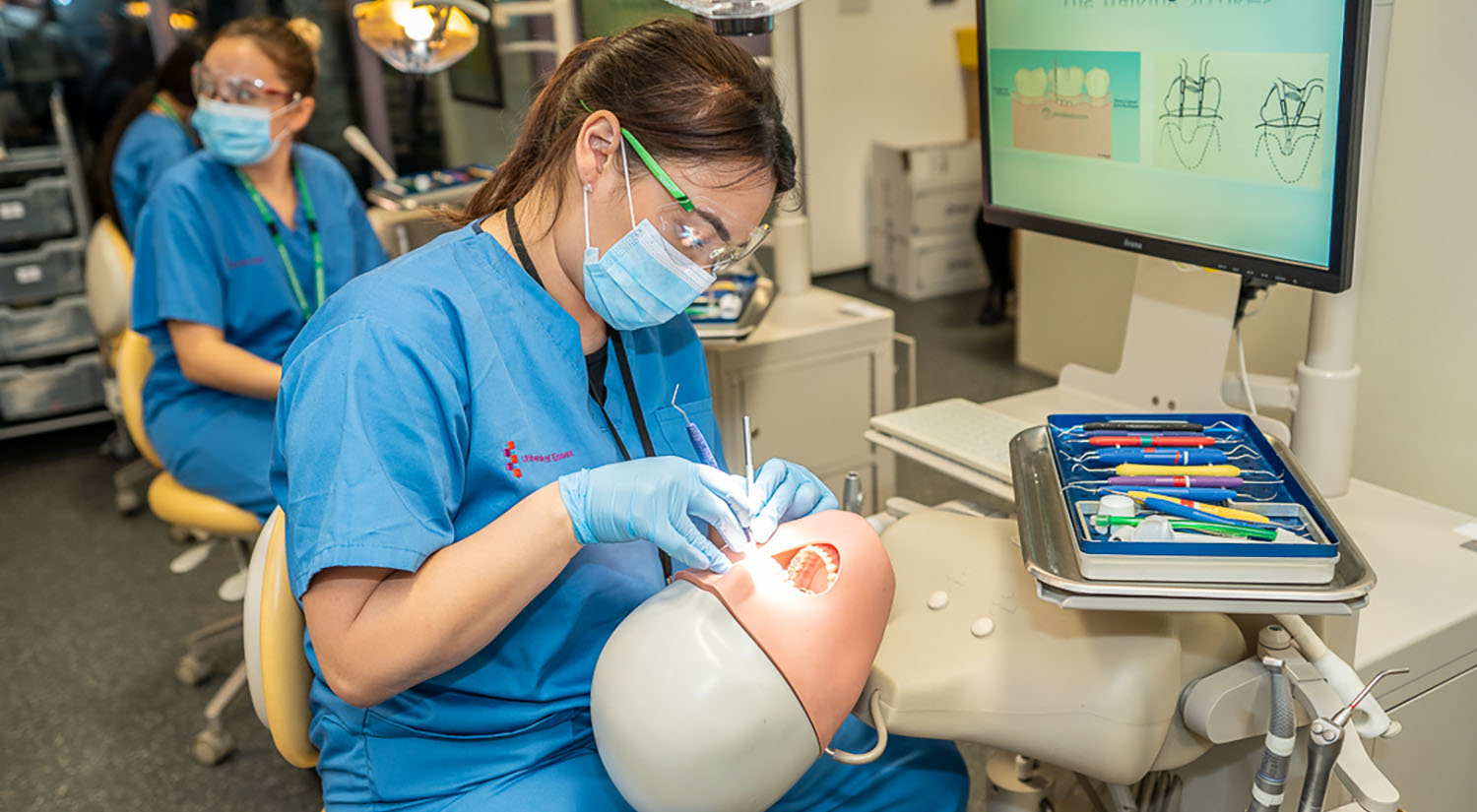
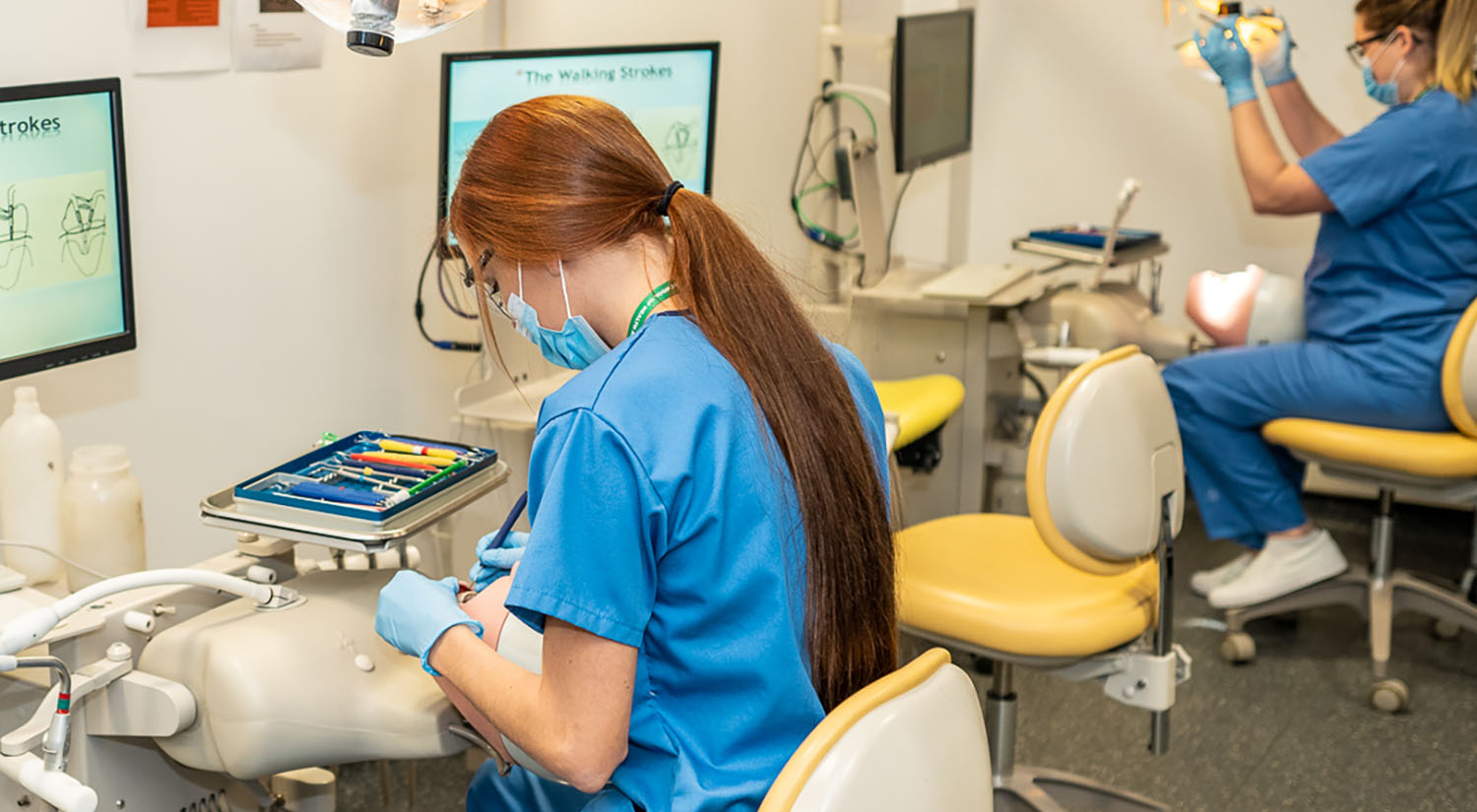
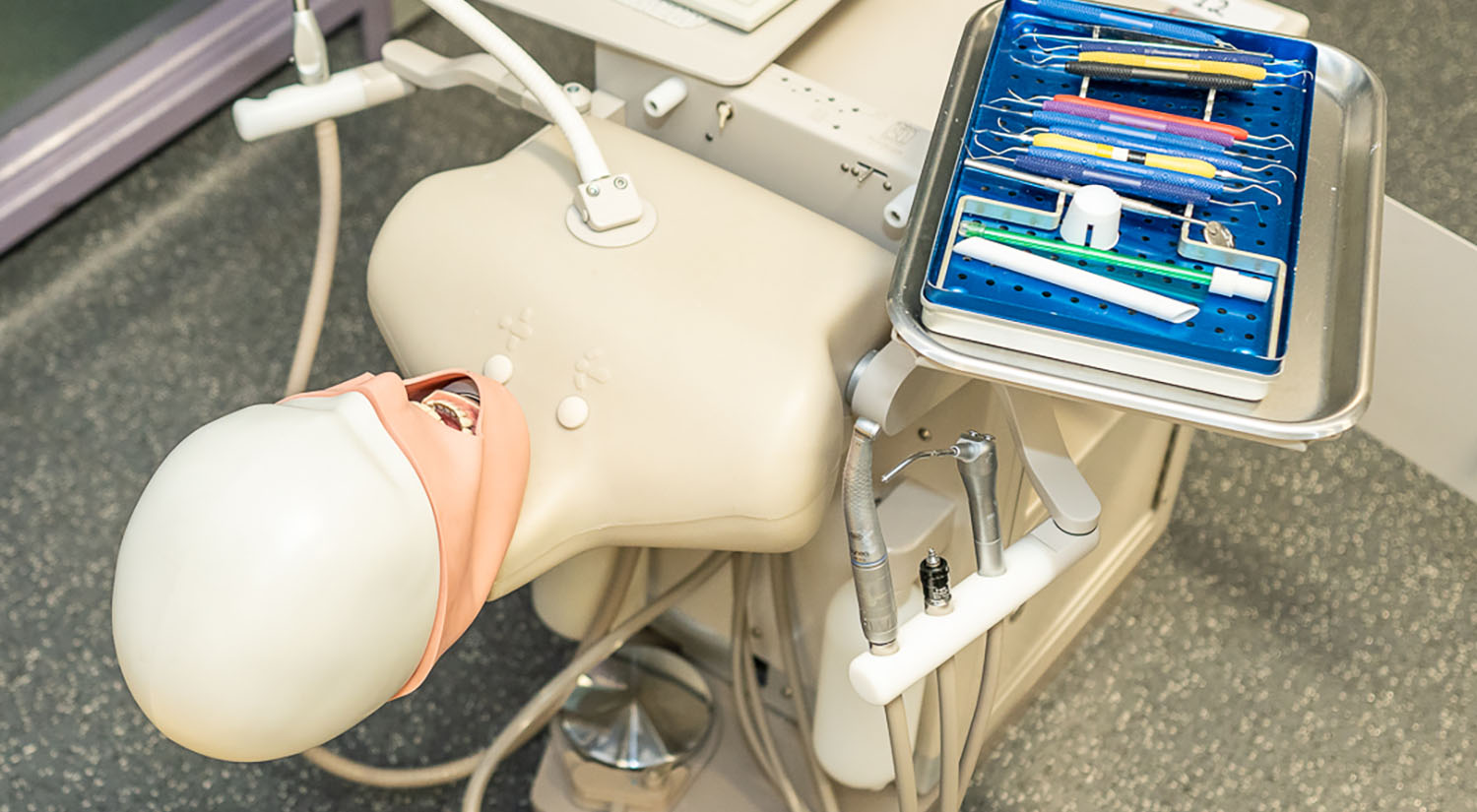
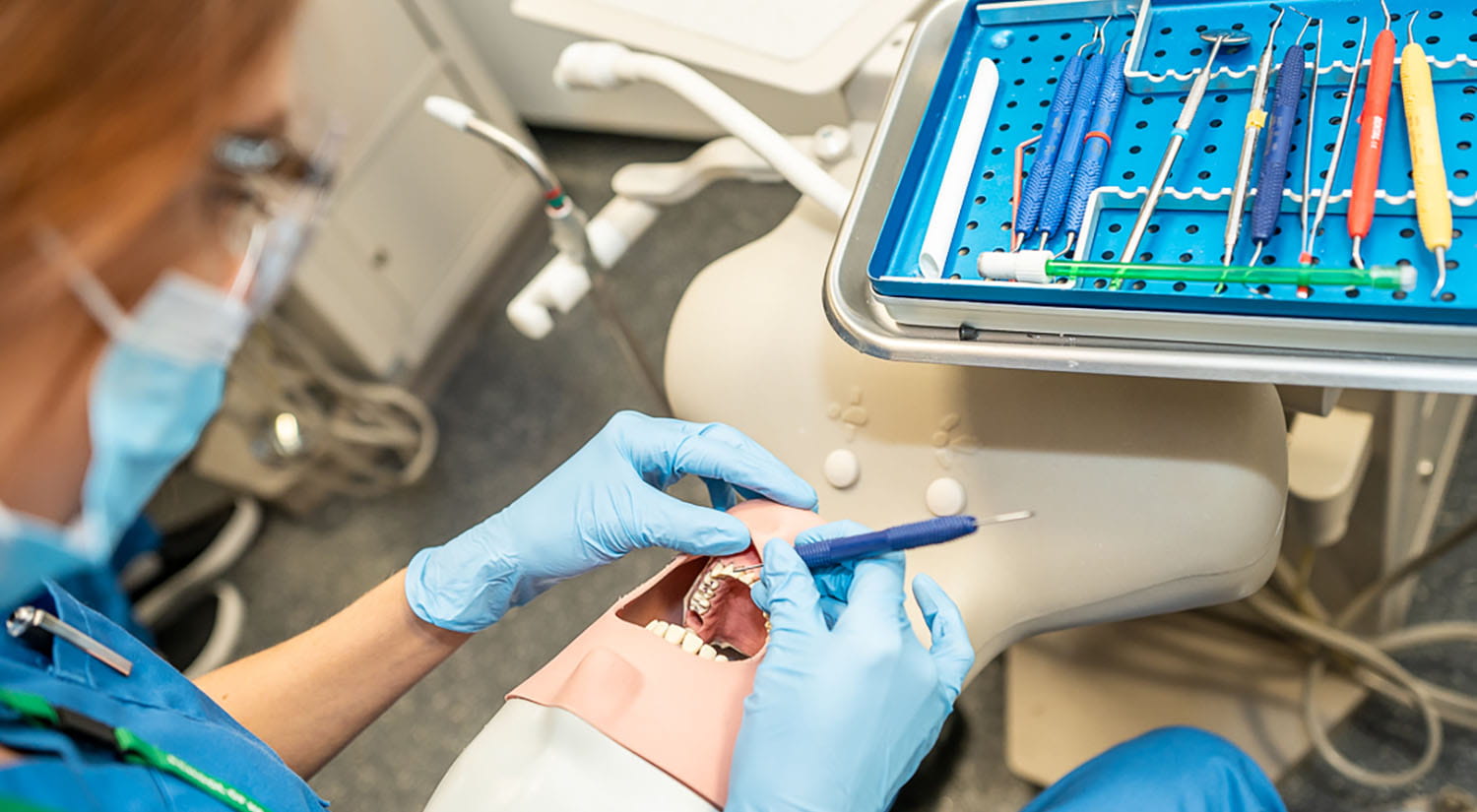
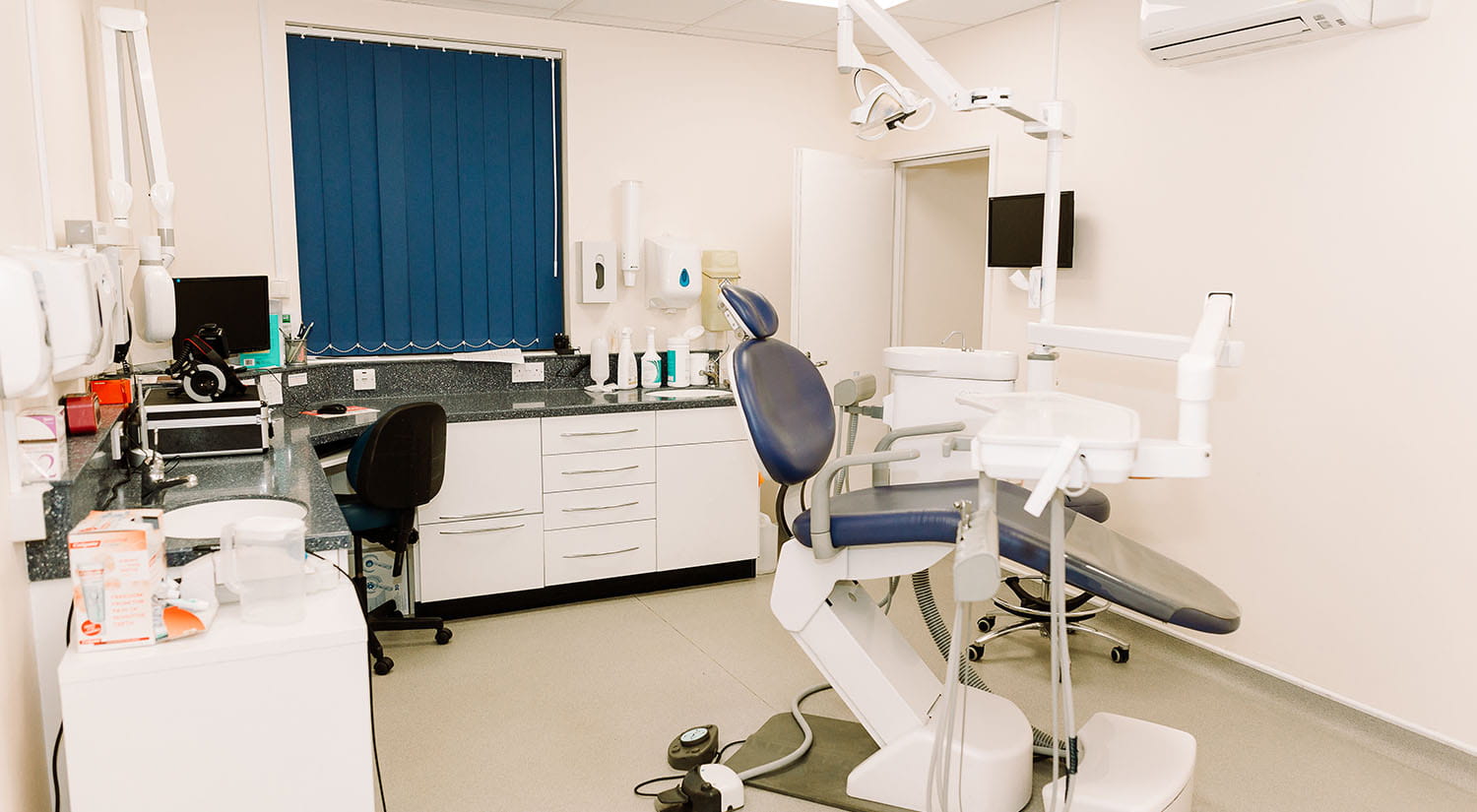
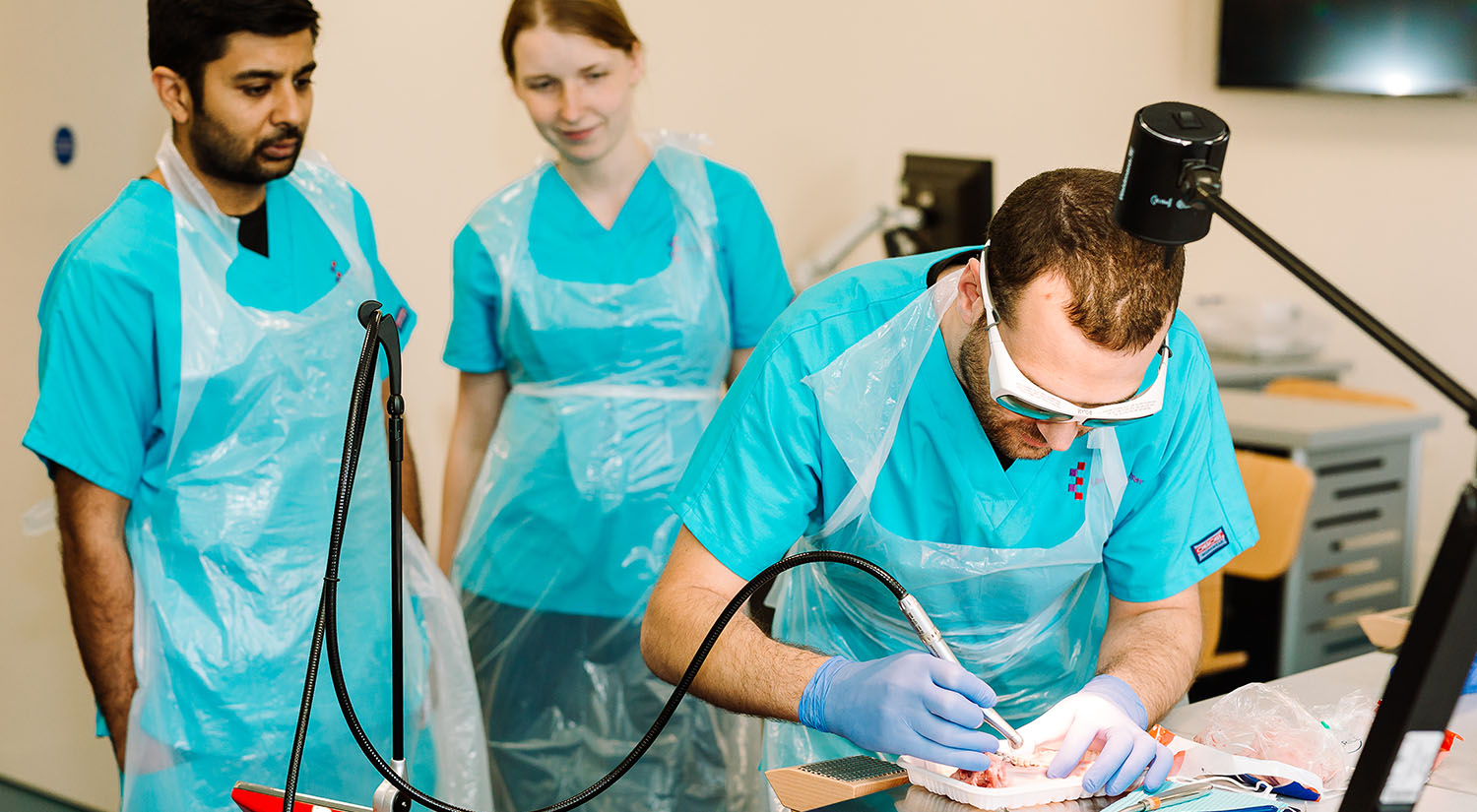
1500-x825.jpg?mh=825&mw=1500&hash=010EB23E7CABBD8943C933D6D993B700)
-1500x825.jpg?mh=825&mw=1500&hash=B71E7D553864F041084CF4F933A5EABD)
1500x825.jpg?mh=825&mw=1500&hash=564A25204F7B4B216647E76E31F6ABC6)
-1500-x-825.jpg?mh=825&mw=1500&hash=47D7D685F29366BF2984209FA7572A5E)


